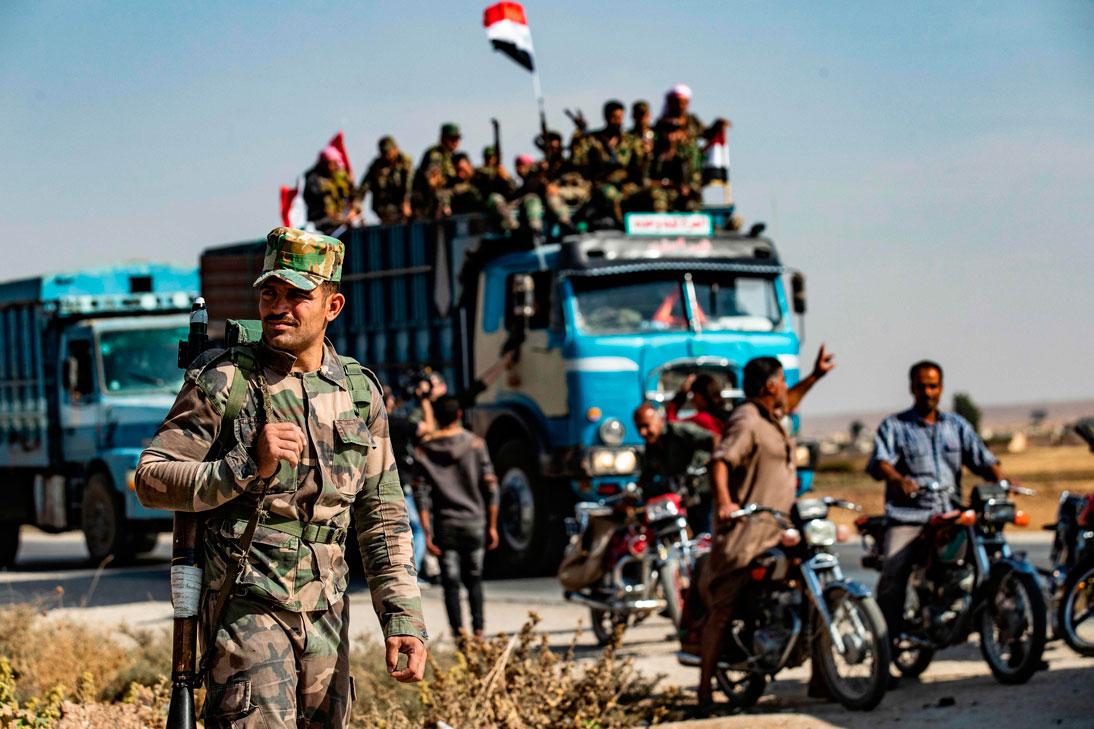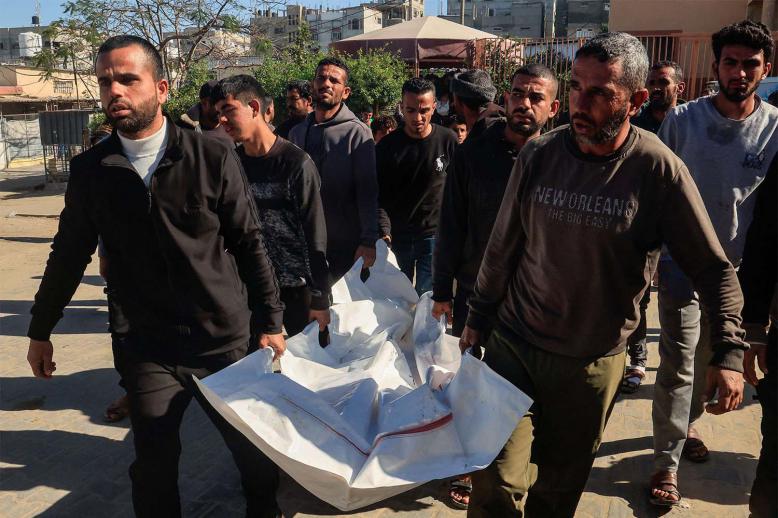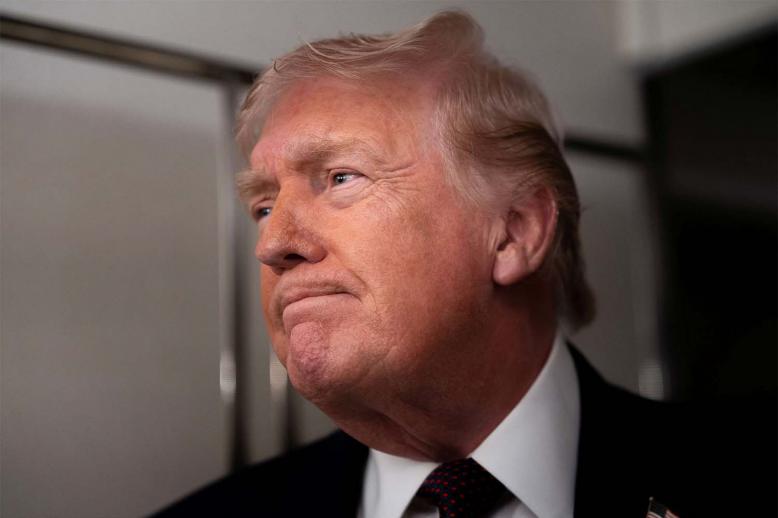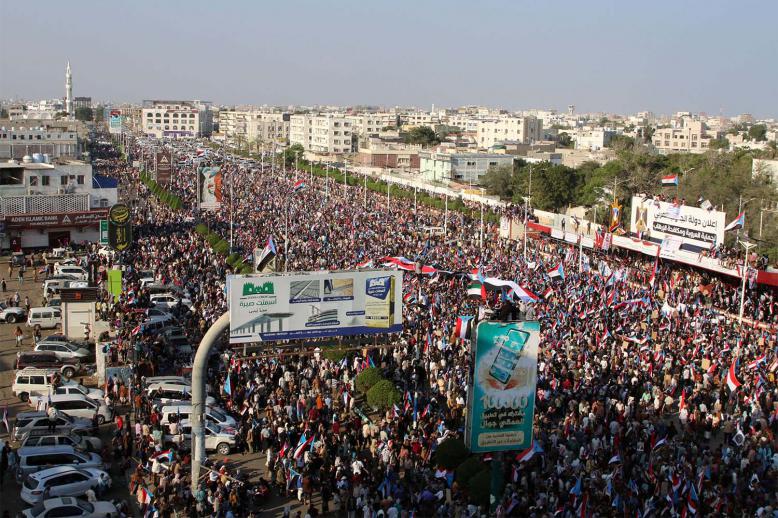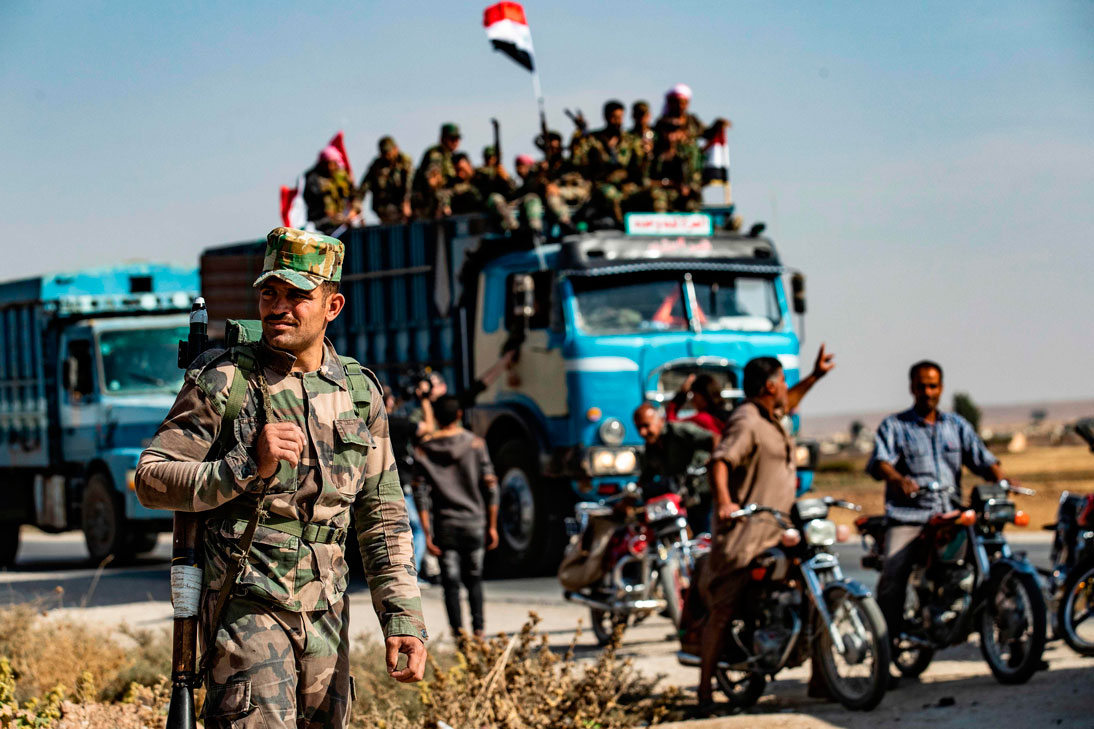Regime forces create new dynamic in northern Syria
DAMASCUS - The Syrian army has taken control of military bases in northeast Syria that were abandoned by US forces, Russian state TV reported on Wednesday.
Syrian regime forces deployed alongside Kurdish forces on the front line in northern Syria Wednesday but their newfound cooperation saw no let-up in the week-old Turkish invasion, the Syrian Observatory for Human Rights said.
In the border town of Ras al-Ain, where Kurdish fighters have put up stiff resistance against Ankara's incursion, battles raged following a night of heavy Turkish air strikes and artillery fire, the monitor said.
Since its launch on October 9, the Turkish offensive has killed dozens of civilians, mostly on the Kurdish side, and prompted at least 160,000 to flee their homes.
Turkey and its proxies - mostly Arab and Turkmen former rebels defeated by regime forces earlier in Syria's eight-year-old conflict - have already conquered territory along 120 kilometres of the border.
Abandoned by the US - their chief ally in years of battles against IS that saw them lose 11,000 of their fighters - the Kurds turned to Damascus, allowing the Syrian regime to enter territory in the north that had been out of its control for years during the civil war.
Under the deal announced on Sunday after President Donald Trump ordered the withdrawal of US troops, government troops have returned to key Kurdish-held areas to aid Syrian Kurdish forces as they face off against a much larger and better equipped Turkish army.
Syrian soldiers have been sent to Manbij, Tal Tamr, Ain Issa and Tabqa in their most significant deployment since the army started withdrawing from Kurdish-majority areas in 2012.
In a rare scene in Syria's eight-year-old civil war, government troops and Kurdish fighters were "fighting together" against Turkey's Syrian proxies northeast of the town of Ain Issa, the Observatory said.
The Britain-based monitor reported "violent clashes" near the M4 highway - a key east-west artery that links the Kurdish heartland in the northeast with Syria's second city Aleppo and the Mediterranean coast beyond.
Turkish President Recep Tayyip Erdogan has dismissed US calls for a ceasefire in northeast Syria despite Russia also ratcheting up international pressure on Ankara over its "unacceptable" week-long military operation.
On Tuesday, Russia moved to fill the void left by the United States by deploying troops to ostensibly keep apart advancing Syrian government forces and Turkish troops.
Rebels and terrorists
Despite the Syrian and Russian deployments, Turkey insisted it would capture the flashpoint town of Manbij. Erdogan, who like Trump faces political difficulties at home, wants to create a buffer zone stretching 30 kilometres from the border into Syrian territory.
He wants to keep at bay the Kurdish Peoples' Protection Units (YPG), which forms the main fighting unit in the Kurdish-led Syrian Democratic Forces (SDF). Ankara sees the YPG as "terrorists" linked with Kurdish insurgents in Turkey. The Turkish government is also hoping to resettle some of the 3.6 million Syrian refugees now in Turkey.
"God willing, we will quickly secure the region stretching from Manbij to our border with Iraq," Erdogan said.
Asked on Sky News if Turkey's military was willing to fight Assad's army, Turkish Vice President Fuat Oktay said, "We hope it's not going to happen, but again we are determined to get control over Manbij."
Russia's special envoy on Syria, Alexander Lavrentyev, said Turkish and Syrian officials were in contact to avoid clashes which "would simply be unacceptable".
But two Syrian soldiers were killed near Ain Issa on Tuesday in shelling by Turkey's Syrian proxies - mostly former rebels paid and equipped by Ankara, the Observatory said.
"It is mostly rebel groups linked to Ankara who are on the front lines, Turkish troops are mostly deployed along the border," the Observatory said.
The intense ballet of military deployments is redrawing the map of territorial control in the region.
"There's a new map. And it's the regime sweeping almost everything, Turkey is left with a few crumbs along the border," said Thomas Pierret, from the French National Centre for Scientific Research.
Turkey insists it will not stop the offensive until it has established the buffer zone along the border, but it now has limited room for manoeuvre in the face of the Syrian regime surge.
Russia and Iran, both Damascus allies, "will act as intermediaries to ensure everybody stays on the patch they have been allocated", said geographer and Syria expert Fabrice Balanche.
He said incidents should not be ruled out "due to the unclear nature of the territorial boundaries and the presence on the Turkish side of uncontrollable elements."
"There could be limited clashes... but no major battles," Pierret said. "The Syrian army cannot take on Turkey... The Turkish army is much better equipped."
"It isn't hard to imagine how areas retaken by the regime could be used as a staging ground for YPG guerrilla operations," he said.
The Kurdish force could be "reinvented as an anti-Turkey force" at Damascus and Moscow's orders. "It's a very credible scenario and could give Russia new leverage against Turkey."
Informal deals?
But at the moment, Moscow is keen to avert any escalation, analysts say.
"Russia is working overtime to prevent any type of large scale conflict between Assad's forces and Turkey and its proxies," said Nick Heras from the Center for New American Security.
Turkey together with Russia and Iran launched the so-called Astana process which provides a framework for peace talks on Syria.
To win support for its invasion, Turkey will need to make concessions over the Idlib region in Syria's northwest, Balanche predicted.
"The Russians finally agreed to this Turkish intervention in the north, in exchange for Idlib," he said, referring to the last opposition bastion in Syria, a region where Ankara has some clout but which Damascus wants to retake.
The strategic relationship between Ankara and Moscow goes far beyond the Syrian conflict. NATO member Turkey has ignored US warnings and acquired Russia's state-of-the-art S-400 missile defence system. Erdogan is expected in Moscow on Thursday for talks with his Russian counterpart Vladimir Putin.
Putin's office said a prior phone call between the two leaders had emphasised "the need to prevent confrontations between units of the Turkish army and Syrian armed forces".
Meanwhile, European governments are worried the chaos in the region could trigger mass breakouts by thousands of IS fighters detained by Kurdish forces. They have warned this could lead to an IS resurgence and increase the risk of some jihadists returning to Europe and conducting attacks.
The Kurds have said hundreds of IS relatives have escaped, although Trump has suggested the SDF may have deliberately released them to gain leverage.
An SDF official on Twitter Tuesday said more IS relatives had tried and failed to escape the overcrowded camped of Al-Hol in eastern Syria. A US official however said Washington was not aware of any "major" jihadist breakout.


